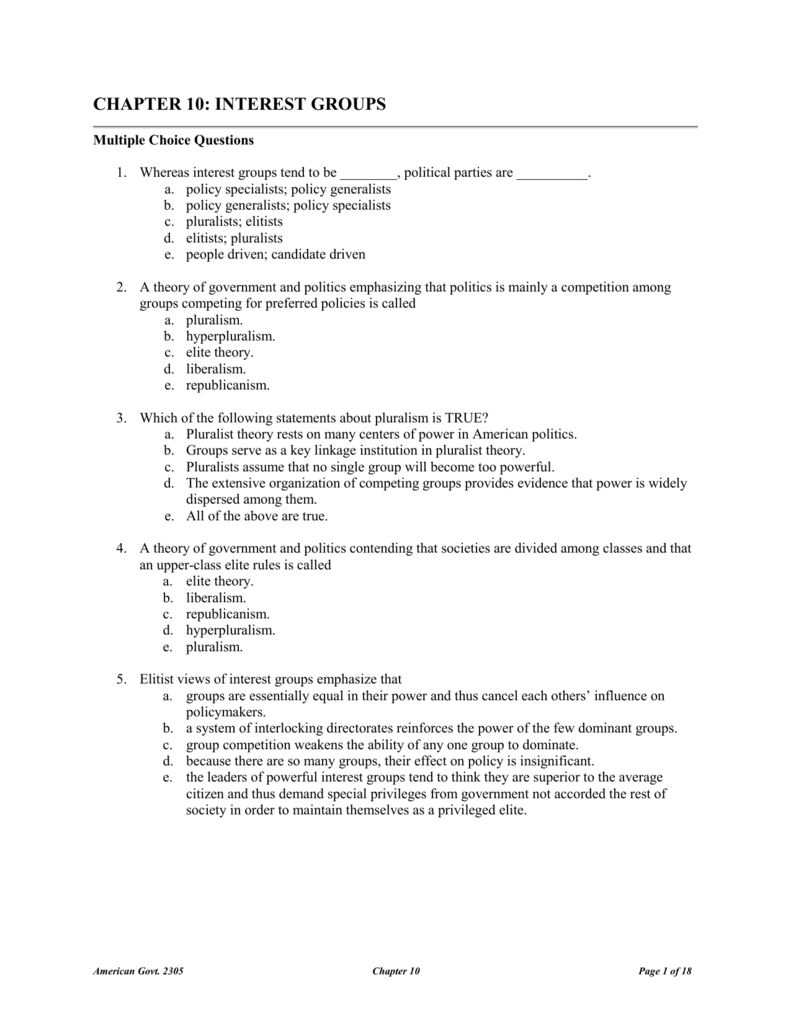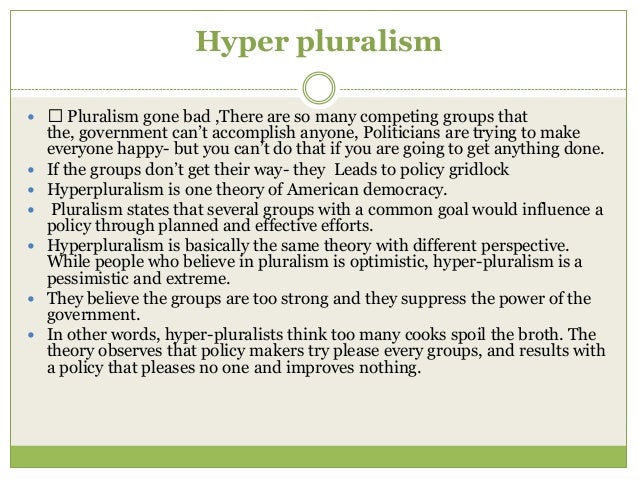Pluralism Theory Of Democracy
It is stated that pluralist theory of democracy is a protest against the elitist theory of democracy and it is realised that the pluralist scholars like bentley raymond aron and robert dahl have emphasised upon the premise that in a democracy various organisations exercise their powers and its not just the government that runs the nation instead others have an impact of the working of the government. Pluralistic democracy theory of a bourgeois reformist theory according to which political power in the contemporary bourgeois state has become the collective power of many organizations and groups such as entrepreneurs associations the church trade unions political parties and farmers organizations.

Chapter 10 Interest Groups Multiple Choice Questions
It is not even necessarily desirable.

Pluralism theory of democracy. It addresses the interests and rights and the representation of the minorities thus forming the core content of liberal democracy. The groups bargain between themselves alongside with government organizations. Perhaps the most extreme example of pluralism is found in a pure democracy where each individual is allowed to vote on all laws and even court decisions.
It affirms the separation of power from state and civil society and also economy from the political power. In this sense pluralism is considered a key element of democracy. Pluralists acknowledge that a number of competing interest groups will be allowed to share power.
Views differed about the division of power in democratic society. A pluralist democracy describes a political system where there is more than one center of power. However pluralism may exist without democracy.
Pluralist theory of democracy. This theory does not necessarily mean that all groups are equal or have the same amount of power. Pluralism is an inclusive concept.
Pluralism critiques direct democracy and instead puts power in groups such as unions civil rights groups lobbies and coalitions. Pluralism is the theory that many different groups run a country rather than individuals. Modern democracies are by definition pluralist as democracies allow freedom of association.
Pluralist theory of democracy is made up of many groups some of them are labor unions businesses nonprofits religions and ethnic groups. Indeed some pluralists believe that direct democracy is not only unworkable. Besides the logistical problems of having every citizen meet at one time to decide policies political issues require continuous and expert attention which the average citizen does not have.
While pluralism as a political theory of the state and policy formation gained its most traction during the 1950s and 1960s in america some scholars argued that the theory was too simplistic see connolly 1969 the challenge to pluralist theory leading to the formulation of neo pluralism.

Ppt Corporatism Pluralism And Democracy Toward A Deliberative

The Pluralist Theory Of The State

Theories Of Democracy

Pdf Democratic Inclusion A Pluralist Theory Of Citizenship 1

William E Connolly Democracy Pluralism And Political Theory By

Pdf Media Pluralism Democracy What S In A Name

Psir 7 10 Pluralist Theory Of Power What Is Polyarchy Upsc

Elite Theory Democracy Q Can Democratic Elitism Justifiably Be

Pdf Democratic Pluralism Or Pluralist Democracy Jiirgen